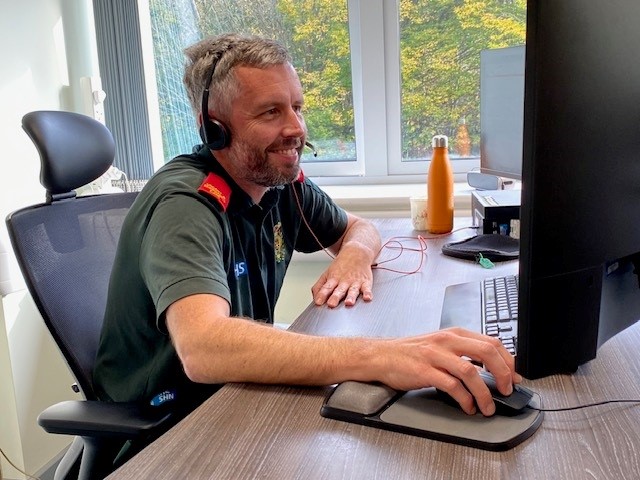 Patients across Sussex will benefit from the establishment of two multi-discipline clinical hubs set to begin operations.
Patients across Sussex will benefit from the establishment of two multi-discipline clinical hubs set to begin operations.
The hubs are designed to ensure 999 callers are receiving the most appropriate response, first time, and reduce the number of patients being taken to emergency departments.
The Unscheduled Care Navigation Hubs (UCNHs), which will be based at South East Coast Ambulance Service’s (SECAmb’s) Brighton and Polegate Make Ready Centres, will operate in partnership with East Sussex Healthcare NHS Trust, University Hospitals Sussex NHS Foundation Trust and Sussex Community NHS Foundation Trust.
The hubs see SECAmb’s highly-skilled clinicians joined by specialist teams from across the local healthcare system to ensure 999 calls are receiving the most appropriate response. The multi-disciplinary hubs complement SECAmb’s existing urgent care hubs, through which the Trust’s Advance Paramedic Practitioners, (APPs) provide support and advice to ambulance crews.
The Brighton hub is expected to begin operations this week, while the Polegate hub is expected to go live next week (week commencing 11 November).
The UCNHs are two of five additional hubs SECAmb has been working with its four Integrated Care Boards (ICBs) and provider trusts to set up across its region this year and follow on from the launch of a hub in Strood, Kent at the beginning of October and two virtual-model hubs in Surrey last week.
The hubs build on successful trials conducted in Kent and Medway over the past year, which have helped arrange appropriate care for patients, avoiding thousands of unnecessary emergency department attendances.
In addition to the five new hubs, SECAmb operates two UCNHs in Ashford and Paddock Wood covering east and west Kent. In its first year in operation, the hub in Paddock Wood helped avoid more than 1,200 emergency department admissions.
The introduction of the hubs, along with an overall increase in partnership working, is key to ensuring SECAmb delivers on its five-year strategy. Its clinically-led strategy, launched in August, SECAmb set out its ambition to embrace new technologies and transition from a predominantly ambulance-based response model to a more differentiated approach, where the type of response is tailored to the individual needs of each patient.
A feasibility period over the coming months will test and evaluate the new hubs.
SECAmb Operating Unit Manager for East Sussex, Richard Harker, said: “I am pleased that we will soon be operating a hub from Polegate and that local people will start to benefit from us bringing multiple disciplines together to ensure our patients are being assessed and treated in the most appropriate place for their condition. The approach should also free up ambulance crews to respond to the most seriously ill and injured patients and reduce demand on emergency departments.”
SECAmb Operating Unit Manager for Brighton, Paul Fisher, said: “We are looking forward to introducing this approach to patient care in Brighton and pleased to see this collaborative approach roll out. By working more closely in partnership with our hospital and community teams in this way, we are far better placed to ensure that patients are receiving the right care in the right place, first time.”
Dr James Ramsay, Chief Medical Officer at NHS Sussex, said: “Our absolute priority is ensuring that people can receive high quality and safe care, and we are confident that a greater number of people will be assessed and treated in the most appropriate place for their condition as these two new hubs open.
“Through the collaboration across health services – ambulance, hospital, and community – we will be able to better assess people’s healthcare needs and ensure that they receive the best possible care, avoiding being admitted to hospital if they can be best supported at home or in the community.
“As we collectively work to improve access for people to urgent and emergency care, this is a positive step forward in delivering our agreed five-year strategy for health and care services in Sussex – Improving Lives Together – for our population.”
